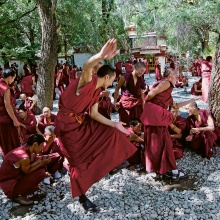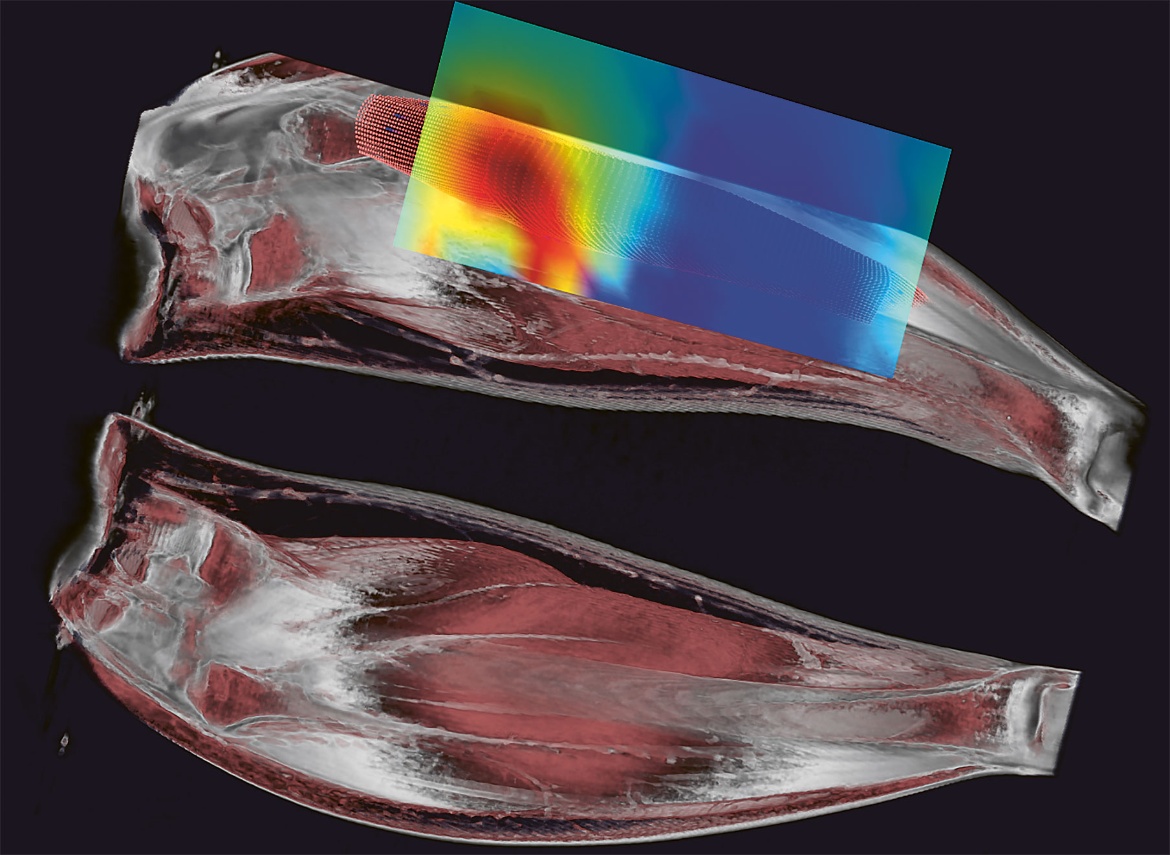“Terra incognita” is the name of a new funding program at the University of Stuttgart with the aid of which researchers are quite literally breaking new ground. Two examples from the first tender round.
Prof. André Bächtiger does not enjoyconflict . “I’m someone who loves to discuss issues in a cooperative way”, says the head of the Department of Political Theory and Empirical Democracy Research (SOWI II) at the University of Stuttgart’s Institute of Social Sciences (SOWI). “However”, he goes, “I’ve found that robust debates in an academic context do move me forward considerably, although I’m psychologically averse to them”. This personal insight may explain one of his main areas of research: the question as to how people ought best communicate to learn and develop mutual understanding.
- The Stuttgart Way
Networked disciplines and interdisciplinary collaboration at the University of Stuttgart
Bächtiger hopes that his new project, which involves an interdisciplinary team from the fields of computational linguistics, social sciences and philosophy, will provide an answer. The scientists are conducting an online experiment under the title “Optimal Communication: Experimental Research in Combination with Simulation and Computational Linguistics”. Participants are divided into groups, which discuss a controversial topic using different discussion formats.
In the “Contestatory Inquiry” format, for example, a facilitator confronts participants with counterarguments and asks them to respond. The “Appreciative Inquiry” format, on the other hand, emphasizes the commonalities between the different positions. Experts, including philosophers, who are not involved in the experiment, then examine who presented the most well-founded and most arguments, both at the individual and group levels.
NEW APPROACHES TO BETTER COMMUNICATION
Bächtiger’s hypothesis is that the confrontational format may well result in a greater knowledge gain, but not the greatest sense of community. In conjunction with the novel computational linguistic evaluation of the research experiment as a whole, Bächtiger views the project as pioneering research. The question is also highly relevant, says Bächtiger, Vice Dean of the SOWI. “Currently, debates, whether in politics or on talk shows, have a very bad image. Many people think: ”what’s the point? They all lay into one another, and in the end, nobody has learned anything.’“ If the planned analyses are successful, the project could point out ways in which communications could be optimally designed and analyzed, for example on the Internet or in citizens’ forums.
Currently, debates, wether in politics or on talk shows, have a very bad image. Many people think: 'whats the point? Thay all lay into one another, an in the end, nobody has learnd anything.’”
Prof. André Bächtiger
Bächtiger’s project is among the initial six projects to be funded by the University of Stuttgart’s new “Terra incognita” research funding program. It is called Terra incognita because the university literally wants to break new ground, or more accurately, it wants to enable scientists to do so. All researchers at the university are eligible to apply for funding, whether individually or in teams. Selected projects receive funding for six to twelve months with sums of up to 50,000 euro.
Something that particularly impresses Ruth Corkill about the new funding scheme is the programmatic freedom to fail. Her project application entitled “Magnetomyography of skeletal muscles” was also successful. “People submitting project proposals are often urged to play down the risks involved”, says the physicist and research assistant at the Institute for Modelling and Simulation of Biomechanical Systems (IMSB). “If possible, the path research will take must appear clear right from the start, which is not at all realistic. This then leads researchers to adopt a rather conservative approach to project design. But, innovation just doesn’t happen in that kind of environment.” On the other hand, she continues, Terra incognita promotes creativity, because it is based on the insight: “high risk, but high reward”.
A BETTER UNDERSTANDING OF MUSCLE ACTIVITY
Corkill’s project involves a radically new approach to taking more accurate measurements of the electrical activity of skeletal muscles. This topic touches upon fundamental medical questions: “if muscle activity is impaired”, she says, “it can hinder movement or even breathing and other fundamental bodily functions. However, we need to understand the mechanisms of muscle activity in much greater detail to develop new therapies. To do so will require better spatial and temporal resolutions, and we’ll need to be able to look much deeper into the muscles in a non-invasive way.”
However, there is one insurmountable problem with the current method of electromyography, which is the measurement of electrical signals, which is that electrical signals attenuate as they propagate through biological tissues. In Corkill’s opinion the requisite paradigm shift could be brought about by measuring the magnetic fields generated by the electrical activity of skeletal muscles, because it is highly likely that estimating the location and size of a bioelectric source by means of magnetic measurement will be more accurate.
She is currently collaborating with experts in the fields of quantum physics, simulation technology and ethics to develop novel quantum sensors to take these measurements and to confirm the concept.
Corkill, a New Zealander, who has been conducting research at the University of Stuttgart since April 2018, first learned about Terra Incognita through her supervisor Prof. Oliver Röhrle, Vice Dean of the Faculty of Civil and Environmental Engineering. With a master’s degree in physics and another in poetry, she originally came to Stuttgart because she saw an opportunity to work with Röhrle to combine sophisticated physics with applications “that do something positive for people”.
Text: Judith Reker
Prof. Dr. André Bächtiger
Institute of Social Siences
Department of Political Theory and Empirical Democracy Research
Ruth Corkill
Research Assistant
Institute for Modelling and Simulation of Biomechanical System




